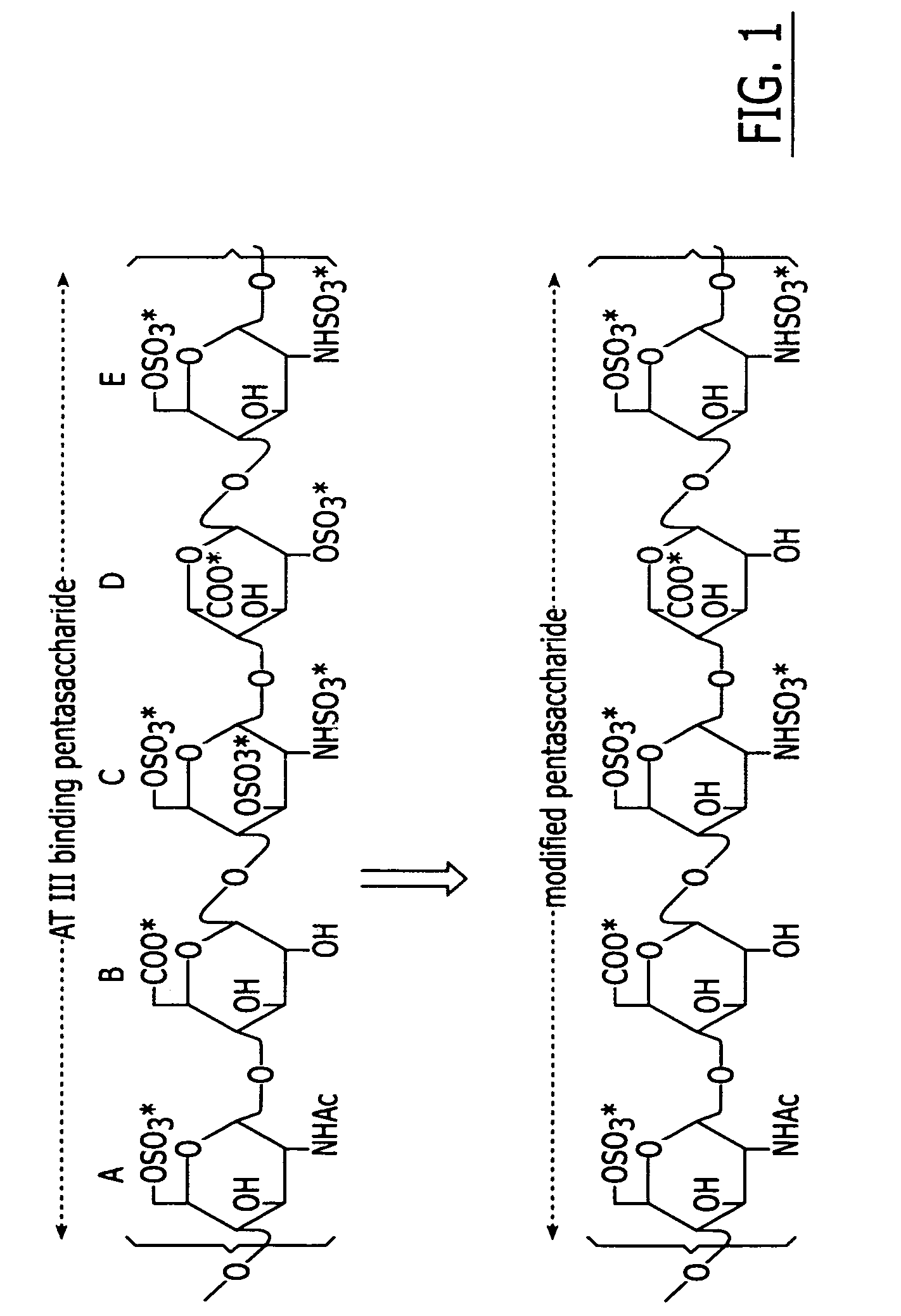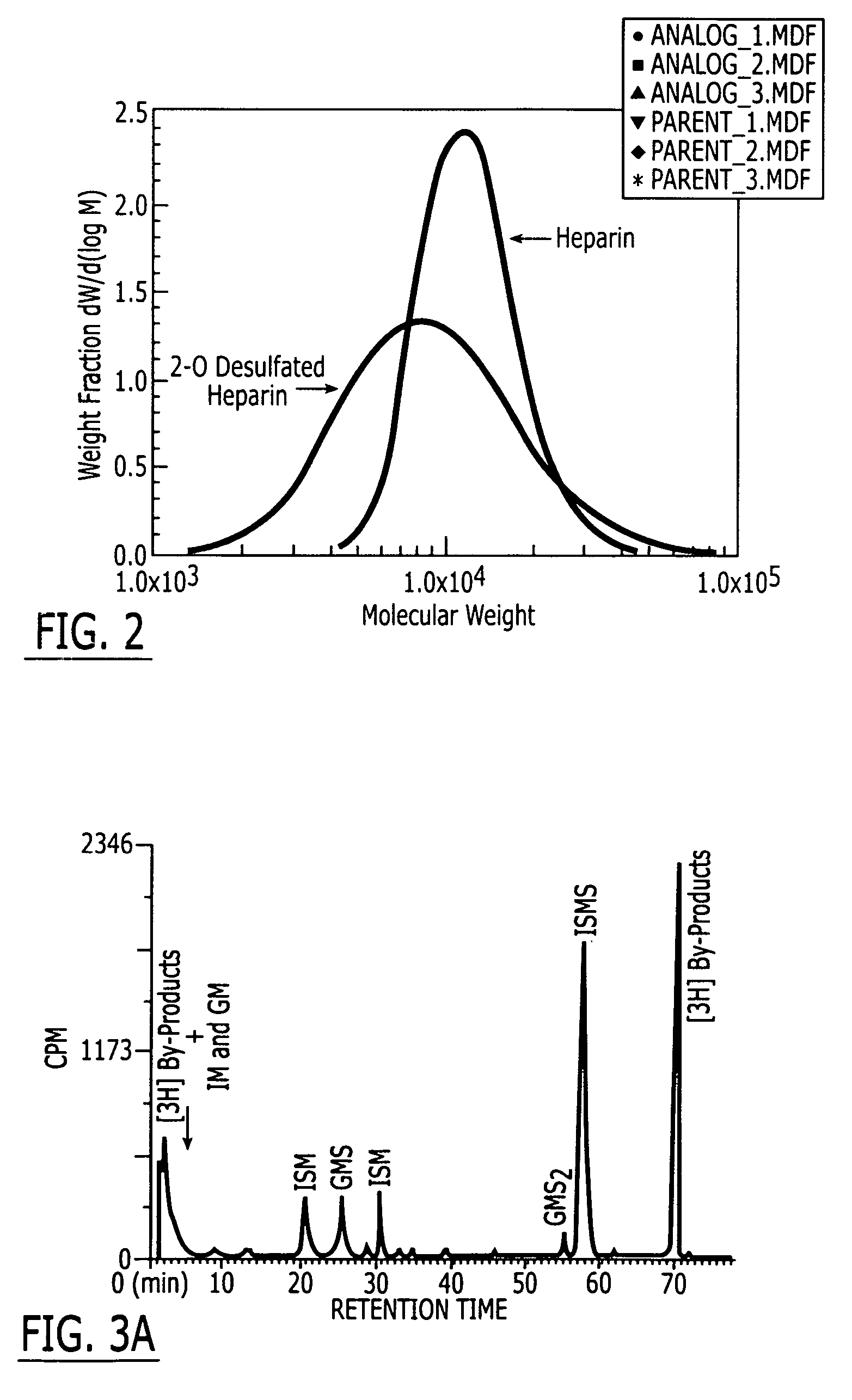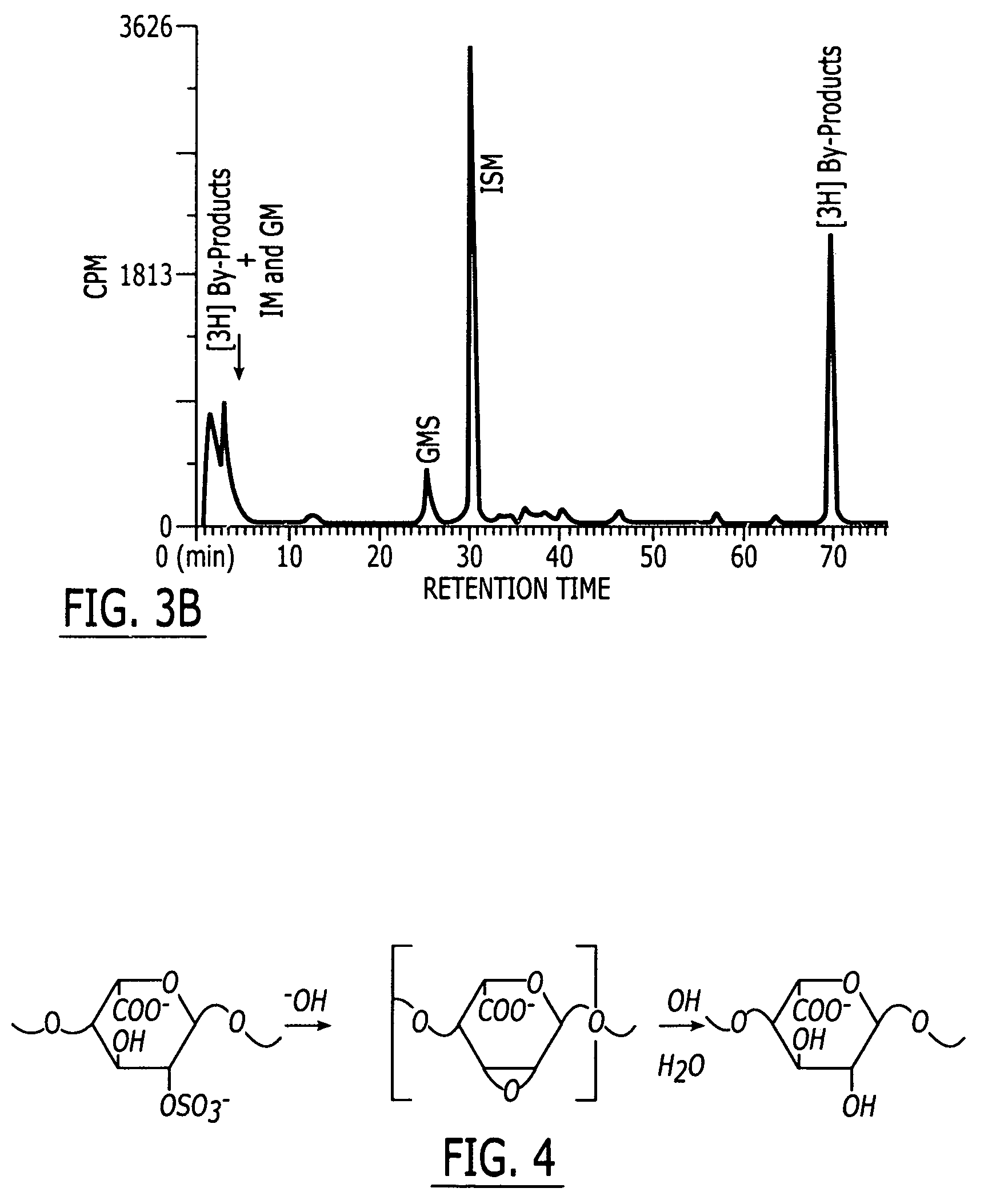Method and medicament for sulfated polysaccharide treatment of heparin-induced thrombocytopenia (HIT) syndrome
a thrombocytopenia and sulfated polysaccharide technology, applied in the direction of biocide, drug composition, extracellular fluid disorder, etc., can solve the problems of limiting the use of heparin, causing bleeding, and increasing the risk of patients, so as to reduce the activity of platelet aggregation and bleeding risk, prevent platelet aggregation and vascular thrombosis, and reduce the risk of anticoagulant activity and bleeding
- Summary
- Abstract
- Description
- Claims
- Application Information
AI Technical Summary
Benefits of technology
Problems solved by technology
Method used
Image
Examples
example i
Production of 2-O Desulfated Heparin that is Nonanticoagulant, does not Activate Platelets in the Presence of a Heparin-Induced Thrombocytopenia Antibody, and Even Ameliorates Platelet Activation Induced by Heparin in the Presence of a Heparin-Induced Thrombocytopenia Antibody
[0079]Partially desulfated 2-O desulfated heparin can be produced in commercially practical quantities by methods described in U.S. Pat. Nos. 5,668,188; 5,912,237; and 6,489,311. Heparin modification (to ODS heparin) was made by adding 500 gm of porcine intestinal mucosal sodium heparin from lot EM3037991 to 10 L deionized water (5% final heparin concentration). Sodium borohydride was added to 1% final concentration and the mixture was incubated overnight at 25° C. Sodium hydroxide was then added to 0.4 M final concentration (pH greater than 13) and the mixture was lyophilized to dryness. Excess sodium borohydride and sodium hydroxide were removed by ultrafiltration. The final product was adjusted to pH 7.0, pr...
example ii
Intravenous Injection of 2-O Desulfated Heparin Produces Blood Levels Necessary for Complete Amelioration of Platelet Activation by Heparin in the Presence of a Heparin-Induced Thrombocytopenia Antibody
[0097]To determine if levels of 2-O desulfated heparin reached sufficient concentration in vivo to suppress HIT-related platelet activation, three groups of beagle dogs (n=4 each) were injected with 2-O desulfated heparin (ODSH) produced as in Example III. Injections were given over 2 minutes in doses of O (saline control, group 1), 4 (group 2), 12 (group 3) and 24 mg / kg (group 4). Injections were performed 4 times daily for 10 days. On a daily basis, the total ODSH doses administered were 0, 16, 48 and 96 mg / kg. Whole blood was collected on study days 1, 2, 4, 6, and 8, at 15 minutes and 6 hours after the first injection of the day. Also, following the final ODSH injection, samples were collected at 15 minutes, and 1, 2, 4, 6 and 8 hours. All samples were collected in vacutainer tube...
example iii
Commercially Feasible Production of 2-O Desulfated Heparin that is Nonanticoagulant and Inhibitory for Human Leukocyte Elastase
[0105]Nonanticoagulant 2-O desulfated heparin can be produced in even larger, more commercially feasible quantities. USP porcine intestinal heparin is purchased from a reliable commercial vendor such as Scientific Protein Laboratories (SPL), Wanaukee, Wis. It is dissolved at room temperature (20±5° C.) to make a 5% (weight / volume) solution in deionized water. As a reducing step, 1% (weight / volume) sodium borohydride is added and agitated for 2 hours. The solution is then allowed to stand at room temperature for 15 hours. The pH of the solution is then alkalinized to greater than 13 by addition of 50% sodium hydroxide. The alkalinized solution is agitated for 2-3 hours. This alkalinized solution is then loaded onto the trays of a commercial lyophilizer and frozen by cooling to −40° C. A vacuum is applied to the lyophilizer and the frozen solution is lyophiliz...
PUM
| Property | Measurement | Unit |
|---|---|---|
| pH | aaaaa | aaaaa |
| temperature | aaaaa | aaaaa |
| temperature | aaaaa | aaaaa |
Abstract
Description
Claims
Application Information
 Login to View More
Login to View More - R&D
- Intellectual Property
- Life Sciences
- Materials
- Tech Scout
- Unparalleled Data Quality
- Higher Quality Content
- 60% Fewer Hallucinations
Browse by: Latest US Patents, China's latest patents, Technical Efficacy Thesaurus, Application Domain, Technology Topic, Popular Technical Reports.
© 2025 PatSnap. All rights reserved.Legal|Privacy policy|Modern Slavery Act Transparency Statement|Sitemap|About US| Contact US: help@patsnap.com



